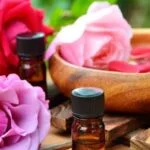Aromatherapy is a holistic healing treatment that uses natural plant extracts to promote health and well-being. In this article, we will explore how aromatherapy works on the body, delving into the science behind it, its impact on the nervous system, immune system, emotional and mental health, as well as the different methods of using aromatherapy. We will also discuss the role of essential oils in aromatherapy, its benefits for the body, and safety precautions for using it effectively.
Aromatherapy has been used for centuries as a natural remedy to improve physical, emotional, and mental health. The practice involves using essential oils extracted from plants to enhance one’s overall wellness. But have you ever wondered how exactly aromatherapy works on the body? In this article, we will delve into the science behind this ancient practice and its various effects on our bodily systems.
By understanding the science behind aromatherapy, we can gain insights into how it affects different systems within our bodies. From impacting the nervous system to boosting the immune system and promoting emotional well-being, aromatherapy has a comprehensive influence on our overall health. Stay tuned as we unpack how aromatherapy harnesses the power of nature to benefit our bodies in various ways.
Understanding the Science Behind Aromatherapy
Aromatherapy is a holistic healing treatment that uses natural plant extracts, known as essential oils, to promote overall wellbeing. But how does aromatherapy work on the body? The science behind aromatherapy lies in the potent properties of these essential oils and their ability to interact with the body’s systems in various ways.
One of the key ways aromatherapy works on the body is through its impact on the nervous system. Essential oils have aromatic molecules that can penetrate the blood-brain barrier and directly affect the areas of the brain responsible for controlling emotions and memories. This explains why certain scents can evoke specific feelings or trigger vivid memories, showcasing how aromatherapy can have a profound impact on emotional and mental health.
In addition to its effect on the nervous system, aromatherapy also influences the immune system. Some essential oils possess antimicrobial properties that can help combat infections, while others have anti-inflammatory effects that can aid in reducing inflammation within the body. These properties contribute to supporting and strengthening the immune system, showcasing how aromatherapy can be utilized as a complementary therapy for overall wellness.
| Key Ways Aromatherapy Works | Impact |
|---|---|
| Nervous System | Directly affect areas of brain responsible for emotions and memories |
| Immune System | Possess antimicrobial and anti-inflammatory properties which strengthen immune system |
The Impact of Aromatherapy on the Nervous System
Aromatherapy, the practice of using essential oils to improve physical and psychological well-being, has been shown to have a significant impact on the nervous system. The sense of smell is closely linked to the brain’s emotional center, which makes aromatherapy a powerful tool for promoting relaxation, reducing stress, and improving overall mental health.
When inhaled, the aroma molecules from essential oils stimulate the olfactory nerves in the nose. These nerves then send signals to the limbic system in the brain, which is responsible for controlling emotions, behavior, and long-term memory. This process triggers a release of neurotransmitters such as serotonin and endorphins, which are known for their mood-boosting and pain-relieving effects. Thus, aromatherapy can help regulate mood swings, reduce anxiety levels, and promote a sense of calm and well-being.
Moreover, specific essential oils have been found to have a direct impact on brain activity. For example:
- Lavender oil has been shown to have a calming effect by reducing heart rate and blood pressure.
- Peppermint oil has been found to enhance memory and increase alertness.
- Rosemary oil has been linked to improved cognitive function and mental clarity.
Understanding how aromatherapy works on the body can open new doors for utilizing this natural practice to support overall mental health and well-being. By incorporating aromatherapy into daily routines or seeking out professional guidance from trained aromatherapists, individuals can harness its potential benefits for improving their nervous system function and emotional health.
Aromatherapy and the Immune System
Aromatherapy has been known to have a positive impact on the immune system, supporting the body’s natural defense mechanisms. Through the use of essential oils, aromatherapy can help to strengthen the immune response and promote overall wellness.
Boosting Immunity
Certain essential oils have been found to have immune-boosting properties, such as tea tree, eucalyptus, and oregano. These oils contain compounds that can help to stimulate the production of white blood cells, which play a crucial role in fighting off infections and diseases.
Reducing Inflammation
In addition to boosting immunity, aromatherapy can also help to reduce inflammation in the body. Chronic inflammation has been linked to a variety of health issues, including autoimmune disorders and other immune-related conditions. Essential oils like lavender, chamomile, and frankincense have anti-inflammatory properties that can help to support the immune system by reducing inflammation.
Supporting Overall Wellness
By incorporating aromatherapy into your wellness routine, you can support your overall health and well-being. The use of essential oils through diffusers, massage oils, or inhalation can contribute to a stronger immune system and help the body better defend against illness and disease. Understanding how aromatherapy works on the body‘s immune system can be an important step in maintaining good health and preventing illness.
How Aromatherapy Affects Emotional and Mental Health
Aromatherapy has been used for centuries as a natural way to promote emotional and mental well-being. The use of essential oils in aromatherapy is believed to have a direct impact on the limbic system, the part of the brain that is responsible for emotions, memories, and arousal. Here are some ways that aromatherapy affects emotional and mental health:
1. Stress Relief: Certain essential oils, such as lavender, chamomile, and bergamot, have been shown to have calming properties that can help reduce stress and anxiety levels. When inhaled, these oils can trigger a relaxation response in the body, promoting a sense of calm and peacefulness.
2. Mood Enhancement: Aromatherapy can also be used to uplift mood and improve overall emotional well-being. Scents like citrus oils (such as lemon or orange) and peppermint have energizing properties that can help combat feelings of lethargy or sadness.
3. Cognitive Function: Some essential oils are known for their ability to improve cognitive function and mental clarity. Oils like rosemary and eucalyptus may help enhance focus, memory, and overall cognitive performance.
In addition to inhalation, aromatherapy can also be experienced through topical application or diffusion. Whether through massage oils, bath salts, or room diffusers, the use of essential oils can have a profound impact on emotional and mental health by promoting relaxation, uplifting mood, and improving cognitive function.
The Role of Essential Oils in Aromatherapy
The use of essential oils is at the heart of aromatherapy, playing a crucial role in promoting physical and mental well-being. These oils are derived from various parts of plants such as flowers, leaves, stems, and roots, and are highly concentrated extracts that capture the plant’s scent and flavor. Essential oils are known for their therapeutic properties and have been used for centuries in traditional medicine and healing practices.
Chemical Composition of Essential Oils
Essential oils contain a complex mixture of chemical compounds that contribute to their specific aroma and potential health benefits. These compounds include terpenes, phenols, alcohols, esters, and other volatile organic molecules. Each essential oil has a unique composition, which influences its overall effects on the body when used in aromatherapy.
Interaction With the Body
When inhaled or applied to the skin during aromatherapy, essential oils can interact with the body through various mechanisms. The olfactory system plays a key role in how aromatherapy works on the body as inhaling essential oils can trigger responses in the brain that can affect emotions, mood, and hormonal balance. Additionally, when applied topically, these oils can penetrate the skin and enter the bloodstream, allowing their beneficial compounds to exert their effects internally.
Selection and Use of Essential Oils
The choice of essential oils in aromatherapy depends on their specific properties and intended therapeutic effects. Some common essential oils used in aromatherapy include lavender for relaxation, peppermint for energy and focus, eucalyptus for respiratory support, and tea tree for its antimicrobial properties.
It is important to use high-quality, pure essential oils and to dilute them properly before applying them to the skin to ensure safety and maximize benefits. Understanding the role of essential oils is crucial to harnessing the power of aromatherapy for overall wellness.
Different Methods of Using Aromatherapy
Aromatherapy can be used in various methods to achieve its positive effects on the body and mind. One of the most common ways to utilize aromatherapy is through inhalation, which involves breathing in the aromatic molecules from essential oils.
This method can be done by using a diffuser, inhaling directly from the bottle, or by adding a few drops of essential oil to a bowl of hot water and inhaling the steam. Another method is topical application, where essential oils are diluted with carrier oils and applied to the skin through massages, baths, or compresses.
Another way to incorporate aromatherapy into your routine is through internal consumption, although this should only be done under the guidance of a qualified professional. This method involves ingesting small amounts of diluted essential oils for therapeutic purposes. Additionally, aromatherapy can also be enjoyed through environmental fragrance, such as using scented candles, room sprays, or air fresheners that contain natural essential oils.
These various methods of using aromatherapy allow individuals to personalize their experience based on their preferences and needs. Regardless of the chosen method, each one has unique benefits and can effectively promote relaxation, improve mood, reduce stress and anxiety, and support overall well-being.
| Methods of Using Aromatherapy | Benefits |
|---|---|
| Inhalation | Promotes relaxation and reduces stress |
| Topical Application | Aids in pain relief and enhances skin health |
| Internal Consumption | Boosts immune system and supports digestive health |
Exploring the Benefits of Aromatherapy for the Body
Aromatherapy is a holistic healing treatment that uses natural plant extracts, also known as essential oils, to promote overall well-being. When these essential oils are inhaled or applied to the skin, they stimulate the smell receptors in the nose, which then send messages through the nervous system to the limbic system – the part of the brain that controls emotions.
This interaction is what triggers powerful physical and emotional responses in the body, making aromatherapy an effective therapy for various health concerns.
One of the primary benefits of aromatherapy for the body is its ability to aid in pain management. Certain essential oils such as lavender, eucalyptus, and peppermint have been found to have analgesic properties that can help alleviate headaches, muscle aches, and joint pain. Additionally, when used in massage therapy or added to bath water, these oils can provide relief from menstrual discomfort and rheumatoid arthritis.
In addition to pain relief, aromatherapy has been shown to have positive effects on enhancing circulation and improving digestion. Oils like ginger and black pepper can help stimulate blood flow and improve cardiovascular health. Meanwhile, peppermint oil has been known to reduce symptoms of irritable bowel syndrome (IBS) by relaxing muscles in the gastrointestinal tract. These examples demonstrate just how aromatherapy works on the body by targeting specific physical ailments and promoting overall wellness.
Safety Precautions and Considerations for Aromatherapy
When using aromatherapy for wellness and overall health, it is important to take certain safety precautions and considerations into account. Essential oils are highly concentrated substances that can have potent effects on the body, which is why it is crucial to use them with care. Before incorporating aromatherapy into your daily routine, it is advisable to consult with a qualified aromatherapist or healthcare provider to ensure that it is safe for your individual needs.
One important consideration when using aromatherapy is the potential for allergic reactions or skin sensitivities. Some essential oils may cause irritation or allergic responses in certain individuals, so it is essential to perform a patch test before applying any new oil to the skin. Additionally, pregnant women, breastfeeding mothers, young children, and individuals with certain medical conditions should exercise caution when using aromatherapy and may need to avoid specific essential oils altogether.
Proper dilution of essential oils is another crucial safety consideration when using aromatherapy. Undiluted essential oils can be too strong for direct application on the skin and may cause irritation or adverse reactions. It is important to follow recommended guidelines for dilution ratios and always use carrier oils to minimize the risk of skin irritation. Understanding these safety precautions and considerations for aromatherapy can help ensure a positive and beneficial experience while minimizing potential risks.
Throughout history, humans have sought natural ways of improving their lives via plants’ properties; this curiosity has inspired many disciplines centered around plants’ benefits as far back as Ancient China and Egypt till our days in several cultures worldwide.
Aromatherapy is now being recognized as a valid form of alternative medicine because many studies have proven its efficacy in treating various physical ailments such as chronic pain, digestive issues, insomnia; mental ailments like anxiety disorders; other research also suggests that it might be used more often in conjunction with recreational activities due to its calming effects.
Conclusion
In conclusion, aromatherapy has been shown to have a profound impact on the body and overall wellness. Through understanding the science behind aromatherapy, we can appreciate how it works on the body to promote physical, emotional, and mental well-being. By harnessing the power of essential oils and utilizing different methods of application, individuals can experience the various benefits that aromatherapy has to offer.
One of the key aspects of how aromatherapy works on the body is its impact on the nervous system. Essential oils have been found to have calming and soothing effects, which can help reduce stress and anxiety. This in turn can positively influence immune function, as chronic stress has been linked to decreased immunity. Additionally, the use of aromatherapy has also been shown to support emotional and mental health, providing relief from symptoms of depression and aiding in relaxation.
Furthermore, as we explore the benefits of aromatherapy for the body, it becomes clear that this holistic practice can be a valuable tool for overall wellness. From relieving physical discomfort to promoting better sleep and enhancing mood, aromatherapy offers a natural and gentle approach to supporting health. With proper safety precautions and considerations in place, harnessing the power of aromatherapy can contribute to a balanced and healthy lifestyle for many individuals seeking alternative forms of self-care.
Frequently Asked Questions
Does Aromatherapy Have Any Real Benefits?
Aromatherapy is believed to have real benefits for both physical and emotional well-being. Essential oils used in aromatherapy can help reduce stress, promote relaxation, relieve headaches, improve sleep quality, and even alleviate certain physical ailments.
What Part of the Body Is Most Affected by Aromatherapy?
The sense of smell is the primary target of aromatherapy, as essential oils are typically inhaled or absorbed through the olfactory system. This can affect the brain’s limbic system, which plays a key role in emotions, behavior, motivation, and long-term memory.
How Does Your Body Absorb Essential Oils?
When essential oils are inhaled, they travel through the nasal passages and stimulate the olfactory receptors. These receptors then send signals to the limbic system of the brain. When essential oils are applied to the skin, they can be absorbed into the bloodstream and transported throughout the body via blood circulation.

Are you looking for a natural way to improve your health and wellbeing?
If so, aromatherapy may be the answer for you.





